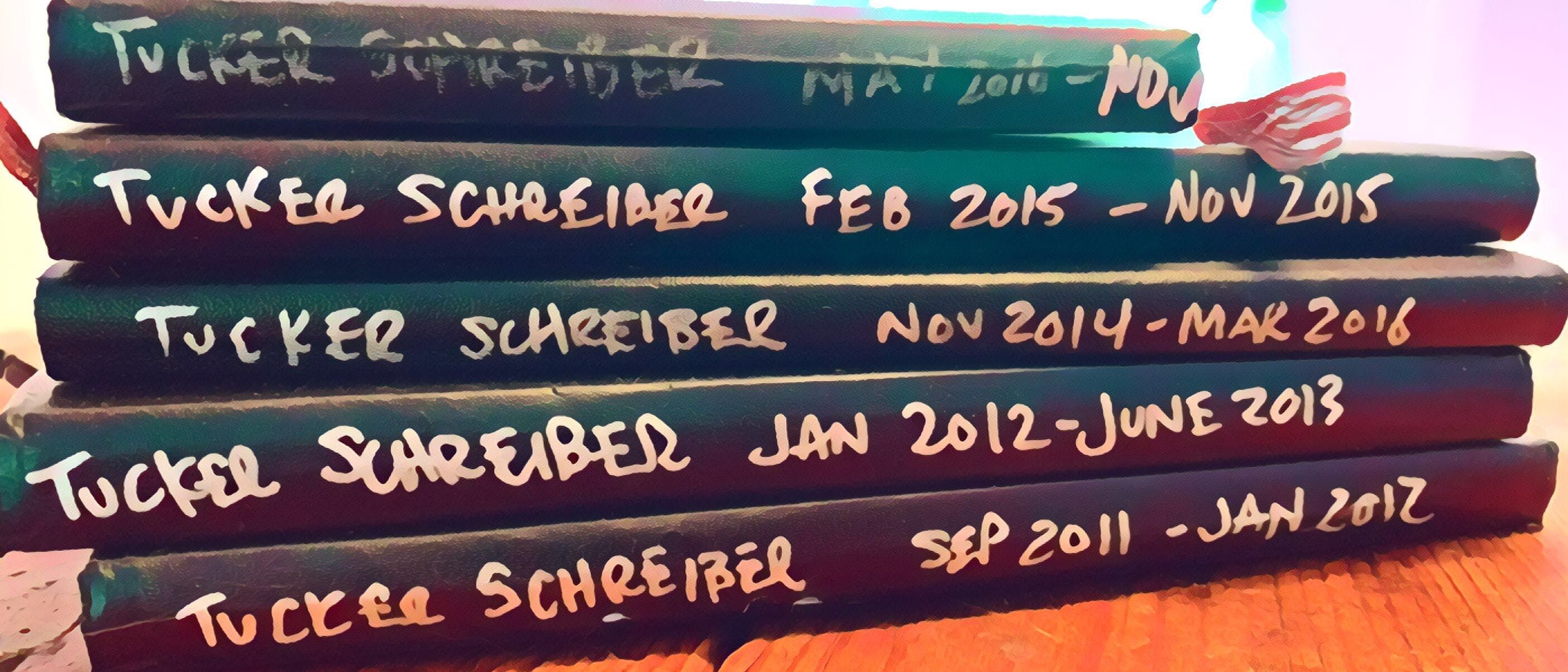“Why are you building another to-do list app? You know there’s tons of those, right?”
That’s something I keep hearing since leaving my full time job to work on Ivy. So I wanted to share why Ivy is so important to me, and to speak openly about what lead me to it.
A bit of history 🕒
In 2013 I was struggling with anxiety and depression. I was diagnosed with generalized anxiety disorder, was frequently going to therapy, and was taking medication to try and manage it. I was in University at the time working two part-time jobs, taking a full course load, paying rent with my credit cards, dealing with student debt, and carrying the emotional burden of my father having just suffered a severe aneurysm (he has since had a miraculous recovery). It was a chaotic and difficult point in my life, and it seemed to happen all at once. I consider myself incredibly fortunate and privileged to have had the support of friends and family during that time.
Something that helped back then was keeping detailed journals of what I was doing, what I needed to do, and what I wanted to do. For me, it was the best way to get out of my head and find clarity in whatever I was dealing with. I started doing this in 2011, and did it even more frequently as things in my life got more hectic.
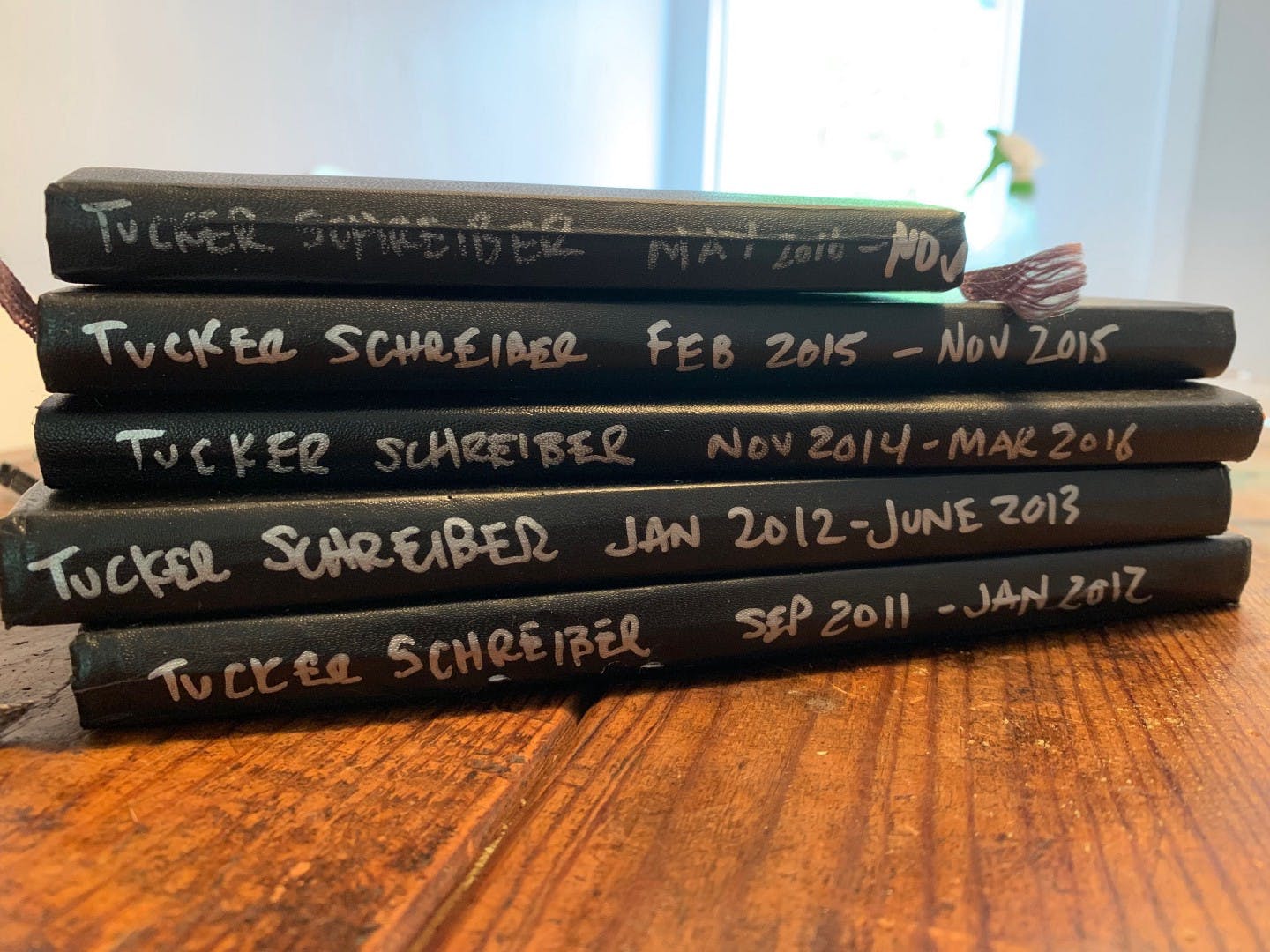
Some of my notebooks
I keep these notebooks as a reminder of what life was like back then. Every few months I’ll read through some of my old notes and scribbles. Each time I do, it reminds me how lucky I am to have “come out the other side” of those really tough points in my life.
A turning point 😊
In 2014 I dropped out of University to join Shopify. It was an exciting time. I had the opportunity to work with and learn from some of the most incredible people I have ever met. I got to work on some projects that I’m really proud of, and I made lifelong friendships with a number of people who I still go to for advice and feedback.
I definitely think that Shopify was a big turning point in my life with respect to my mental health. I can’t really point to one thing in particular about Shopify that helped ease my anxiety and depression, but it definitely gave me a sense of purpose and direction that lit a fire in me that I desperately needed.
After a few years at Shopify, I joined Wealthsimple. I joined Wealthsimple in 2017 because the company’s mission is something that deeply resonated (and still does) with me. The idea of building products for people that would help set them on the path for a better financial future was something that I had a personal connection to.
Wealthsimple was an amazing place to be. I had the opportunity to work with an ambitious, talented, and caring team. I again had the opportunity to work on some exciting projects. And after being at Wealthsimple for almost two years, continuing to manage my anxiety, I felt like I was finally on a path that made sense.
But then my anxiety started to creep back into my life. It’s not that I was working too hard, but that I was trying to get so many things done, and ultimately felt like I was getting nothing done.
So many things to do, so little direction 😕
If you’re like me, you use a number of tools to manage your day. Calendar for meetings, Trello for work related to-dos, Jira for engineering tasks, email for almost anything, Slack for team discussion, InVision for prototyping feedback, GitHub for reviews, pen and paper for notes…you get the idea.
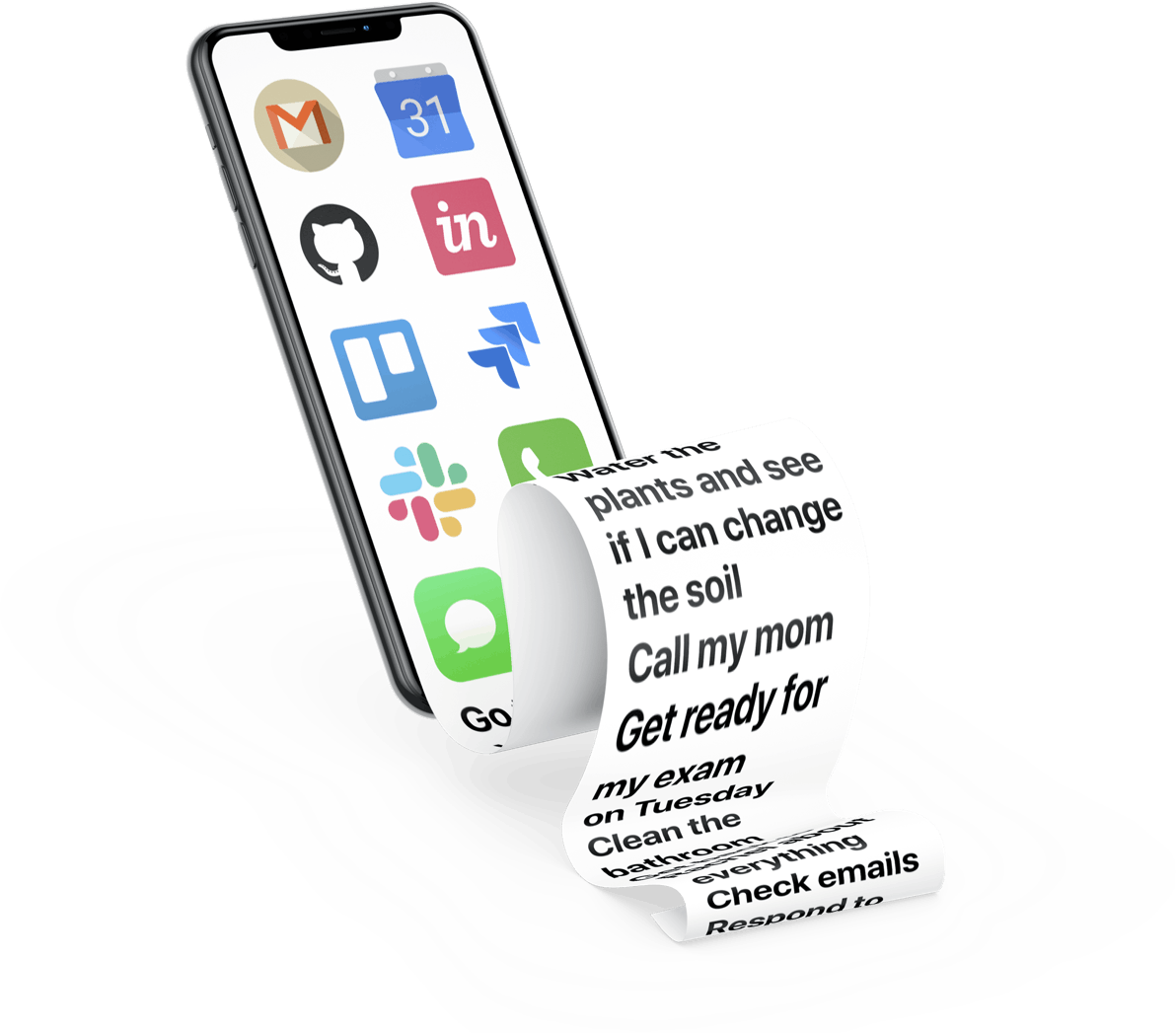
For someone who deals with anxiety and depression, this is not a great way to work. How do I know what emails to respond to? Should I be answering every comment in Trello? Did I forget to leave comments on a new prototype in InVision? Am I using these tools in the way they were intended to be used?
These same feelings were mirrored in my personal life. Did I remember to clean my cat’s litter box? Do I need to do a load of laundry? Is it recycling day? Do I need to water the plants?
I tried a number of different to-do list apps, prioritization methods, and more. But it wasn’t until I came across the Ivy Lee Method that I found something that really stuck. Simplicity worked really well for me, and I started following the method every day, writing down my to-dos on my whiteboard at home.
Over time, I found that it helped me actually look forward to getting things done, even if they were small tasks. It helped me realize that I don’t have to get everything done, just the most important things — and if you’ve dealt with anxiety or depression before, you know how this feels.
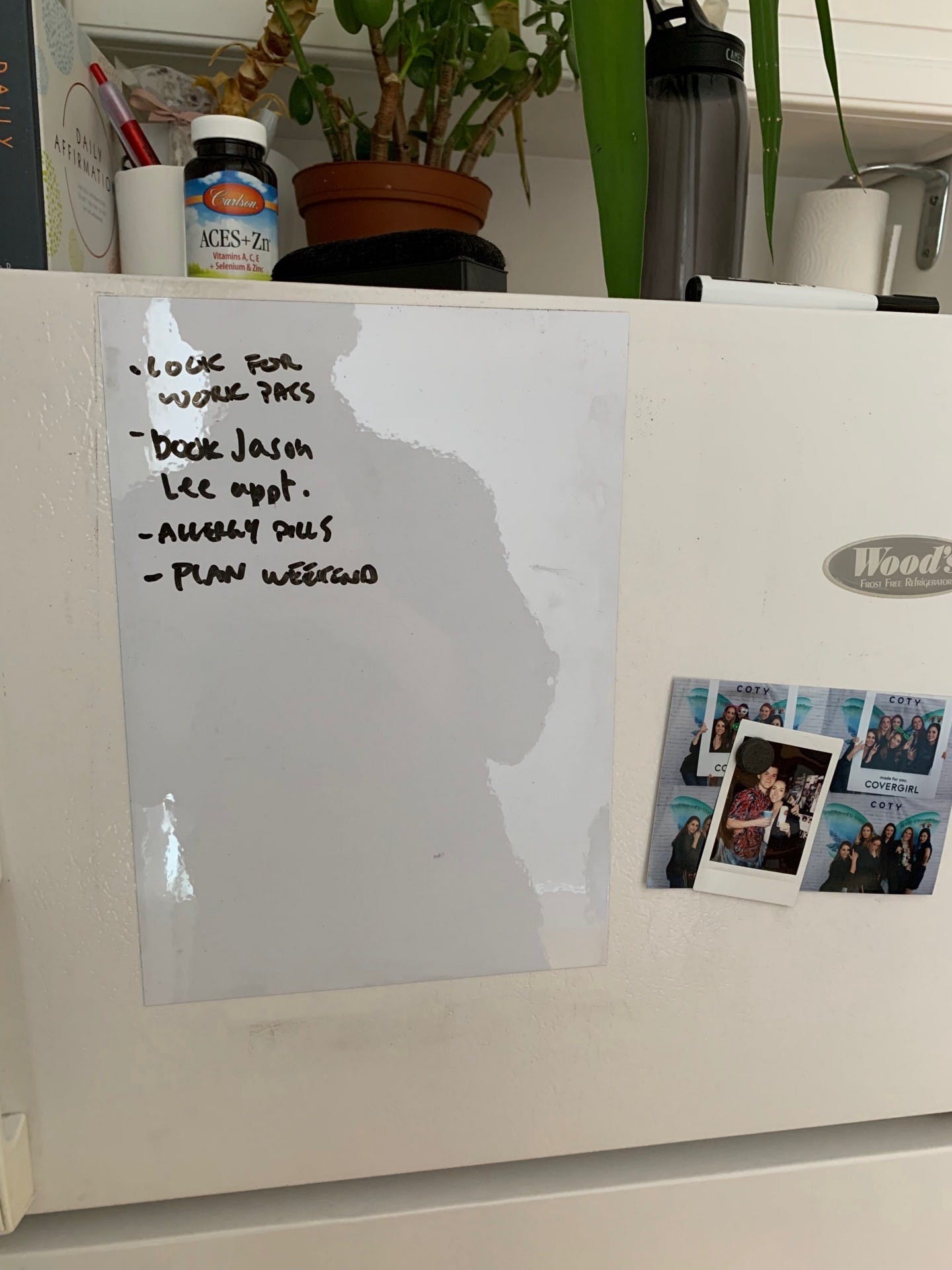
I should probably add “clean fridge” as a to-do…
Here’s how James Clear describes the Ivy Lee Method:
At the end of each work day, write down the six most important things you need to accomplish tomorrow. Do not write down more than six tasks.
Prioritize those six items in order of their true importance.
When you arrive tomorrow, concentrate only on the first task. Work until the first task is finished before moving on to the second task.
Approach the rest of your list in the same fashion. At the end of the day, move any unfinished items to a new list of six tasks for the following day.
Repeat this process every working day.
I started doing this in November of 2018, and some of my friends did too. I think the simplicity of the Ivy Lee Method is what makes it so appealing.
Then I started thinking there must be a way to apply this to my work and personal life. Ivy was born.
(Not) Just another to-do list 🌿
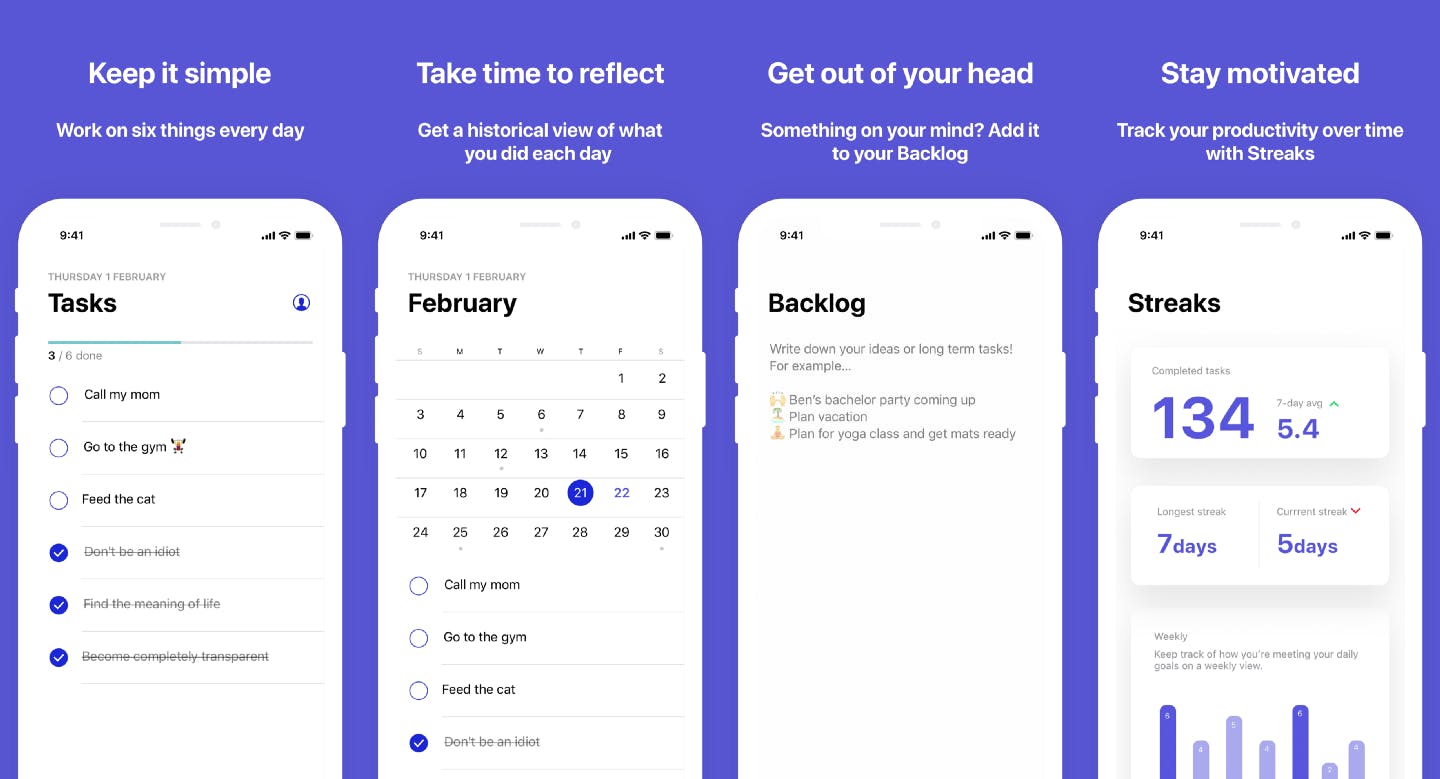
Ivy today
The first line of code for Ivy was written in March, the first group of Beta testers were invited to join in April, and it’s now available on the App Store.
Ivy is an incredibly simple to-do list app based on the Ivy Lee Method. It’s restrictive in its functionality, because over the years I found that so many to-do list apps were full of features that I didn’t need. They left me feeling like I was using the tool incorrectly.
So what can you do with Ivy today?
Keep it simple. Focus on just six things every day. No more, no less. If you don’t mark one item as complete by the end of the day, it’ll get moved to your list of to-dos the following day.
Reflect on what you’ve done. With a calendar view, you can hop back in time to see what you did on certain days.
Get out of your head. Using the Backlog, you can take notes or write down any to-dos that you want to get done at some point in the future.
Stay motivated. With Streaks, you can measure how many tasks you’ve completed over time, and see other fun trends about how you complete your tasks.
To date, this method and simplicity has struck a chord with the awesome folks that helped with the Beta test of Ivy. Indeed, I am not the only one that has been on the hunt for something that bridges the productivity and wellness gap.
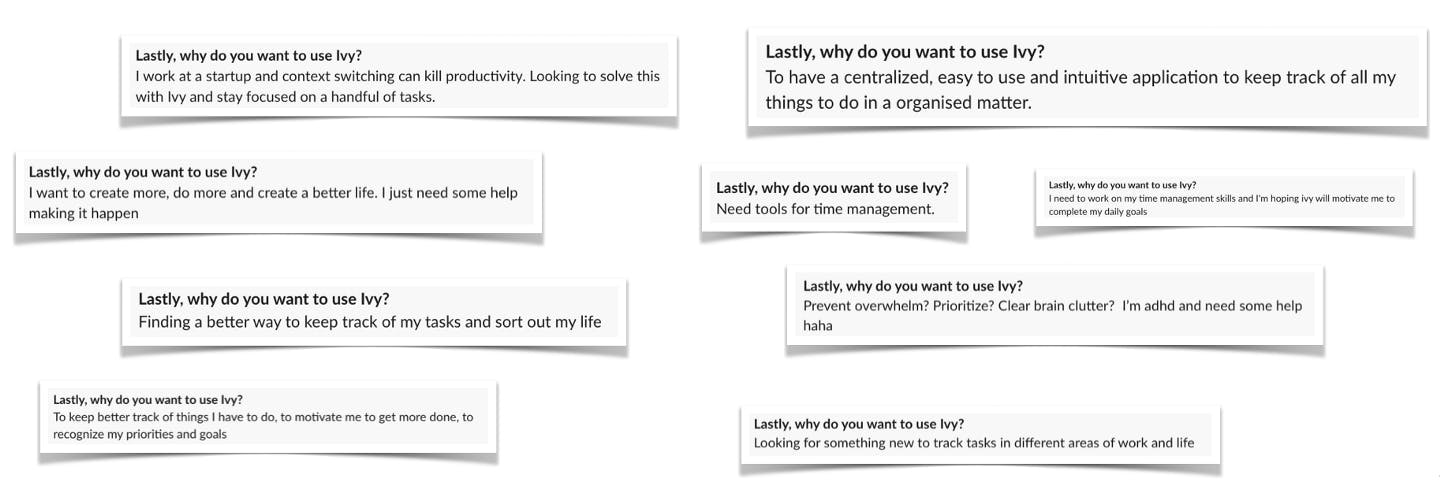
Some responses to a survey of Beta testers
What’s next? ⏩
What gets me excited about Ivy is that I believe it can be a tool that helps people live more optimistic lives — to feel hopeful and confident about the future, just like my journaling and to-dos did at the toughest points of my life. I don't want it to just become another to-do list app.
Ivy will never replace tools like Jira, Github, Trello, or other tools people use to manage their work and personal lives. But I do think it can help people get a grasp of everything they need to do by acting as an aggregator that removes the cruft from all of those other tools.
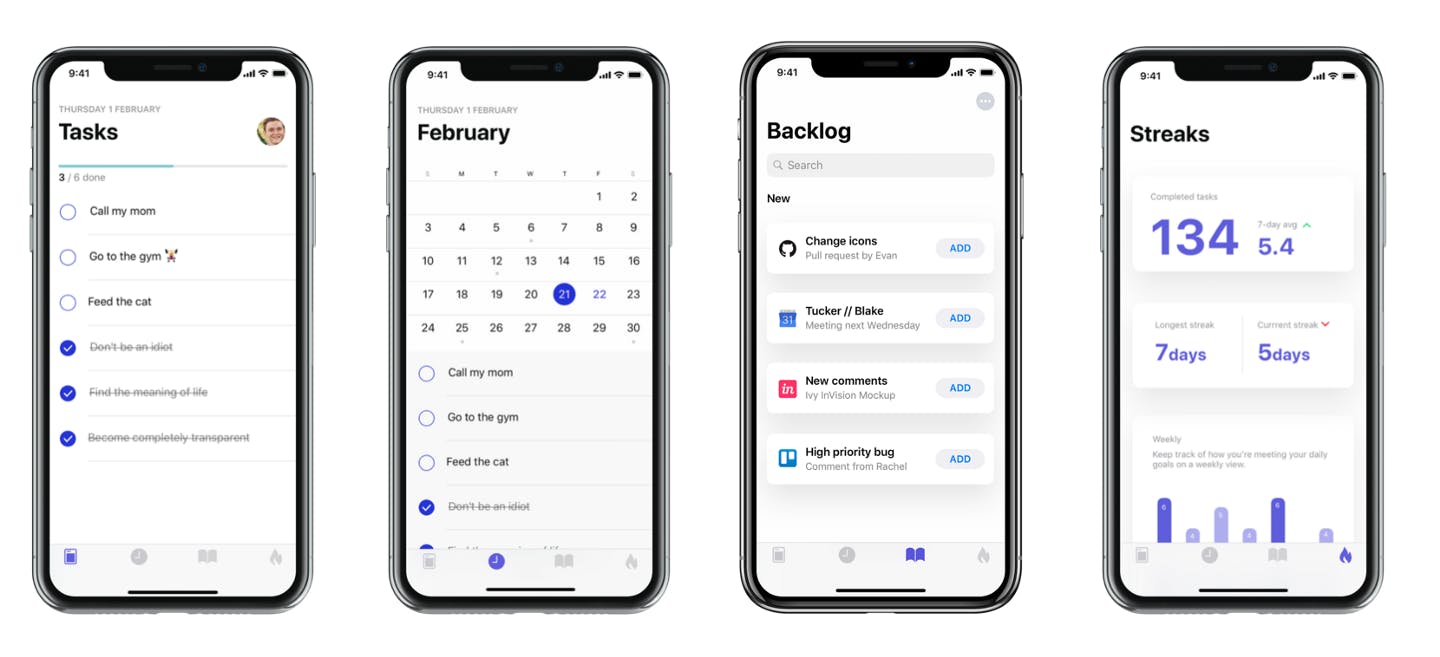
Ivy with integrations
I welcome you to download Ivy today and let me know what you think. If you’re like me and have struggled with anxiety or depression, you might find that Ivy works for you. If it doesn’t, I’d love to hear why and understand what changes can be made to help you in your journey.
I’m also open to speaking more about anxiety and depression. So if you ever feel the need to, please feel free to email me at tucker@getivy.co.
